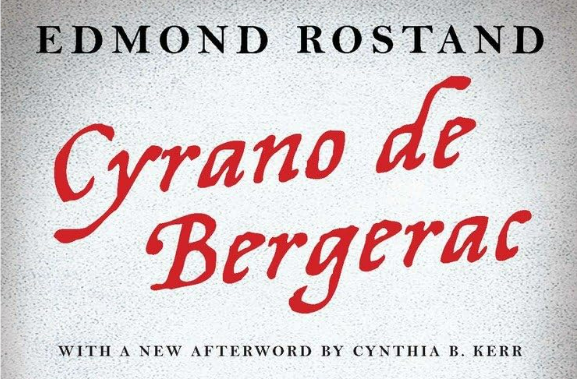Scene 1. III.
byScene 1. III. in Cyrano de Bergerac opens in a bustling theater filled with the vibrant energy of the French nobility, setting the stage for a mixture of intrigue, wit, and spectacle. De Guiche, a prominent and powerful figure, makes his dramatic entrance from Roxane’s box, flanked by a group of fawning noblemen, including the Viscount de Valvert. The nobles engage in light-hearted banter, poking fun at De Guiche’s ribbons, which they call “Sick Spaniard.” This humorous remark references Spain’s anticipated downfall in Flanders, an event that De Guiche’s valor is believed to help bring about. The scene is rich in aristocratic flair, with the crowd’s attention focused on De Guiche’s every move. The grandeur of the occasion is palpable, highlighting the social dynamics that surround the nobility and their inclination to view themselves as above the commoners. This theatrical backdrop sets the stage for more personal dramas to unfold amidst the broader societal performances taking place in the theater.
Christian, a newcomer to this world, finds himself entangled in a much more humble and immediate concern when he is accosted by a pickpocket. Initially, the encounter seems like nothing more than a simple theft, but it quickly escalates into a matter of life and death. The pickpocket, under the cloak of secrecy that comes with his “profession,” reveals to Christian that Ligniere, a friend of Cyrano’s, is in grave danger due to a satirical song he has written. The song, which mocked the powerful and the influential, has provoked the ire of a group of a hundred men who are now waiting for Ligniere at the Porte de Nesle. Christian, shocked by this revelation, realizes that he cannot stand idly by. Driven by a sense of duty and friendship, he quickly resolves to warn Ligniere, deciding to go from tavern to tavern in search of his friend. The urgency of Christian’s mission adds a layer of suspense to the scene, which contrasts sharply with the earlier light-hearted banter and sets the tone for the unfolding events. His decision to act, even when faced with the danger of crossing a powerful group of men, speaks to his growing courage and determination to protect his friends, a theme that will play an important role as the story progresses.
As Christian sets off on his mission, the atmosphere within the theater continues to build, transitioning between comedic moments and tense undercurrents. The audience, still awaiting the performance, is momentarily distracted by the light-hearted antics of a pickpocket who steals an audience member’s wig, leaving him bald. This humorous interlude serves as a brief distraction, but it only heightens the tension in the air, reminding the viewer of the volatility of the situation at hand. In the midst of this, the looming figure of the Cardinal in one of the theater boxes adds an air of gravity to the moment. His presence is a reminder of the authority and power that exists outside the playful world of the theater. The stark contrast between the comedy of the wig-stealing incident and the weight of the Cardinal’s watchful eyes amplifies the tension in the room, giving the scene a multifaceted tone. This dynamic tension between humor and seriousness is a key aspect of Cyrano de Bergerac, allowing the audience to experience the complexity of emotions that define the play. As Christian moves closer to his goal of saving Ligniere, the interplay of light-hearted moments with the looming threats creates a sense of anticipation, compelling the audience to stay engaged with the unfolding drama.
At the heart of this chapter is the intricate balance between humor and suspense, which propels the plot forward while also developing the characters. Cyrano’s world, rich with theatrical flair, is one where high society, humor, and personal vendettas collide in unexpected ways. His influence is felt even in moments when he is not physically present, as his name and reputation stir conversations and reactions among those in the theater. Christian, while caught up in the intrigue of the noble world, is also depicted as someone who is still learning the ropes of this world, navigating through both comedy and danger with a growing sense of resolve. Cyrano’s absence in this chapter does not diminish his impact, as his presence is felt through the actions of his friends and the ripple effect his bold personality has on those around him. This interplay between presence and absence further underscores the theme of influence and reputation in the play, making Cyrano a larger-than-life figure whose reach extends far beyond what is visible on stage.
The juxtaposition of light-hearted humor with serious undertones in this chapter also serves as a reflection of the larger themes in Cyrano de Bergerac. The play navigates through complex emotional landscapes, from Cyrano’s internal struggles with his self-worth to the external challenges posed by societal expectations. The mix of comedy, romance, and tension creates a narrative that is both engaging and rich with depth, offering insights into the human experience. Cyrano’s defiance of societal norms and his unwavering commitment to his principles make him a complex and compelling character whose actions will continue to resonate throughout the story. As Christian sets off to save his friend and the theater prepares for the next act, the stage is set for further explorations of loyalty, love, and the impact of individual actions on the greater world around them. The chapter’s ability to blend these emotions in a single scene demonstrates the mastery with which the play navigates the emotional and social currents that define the lives of its characters.


